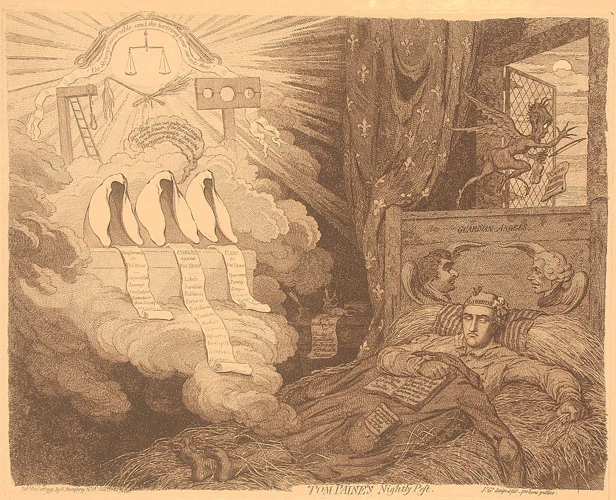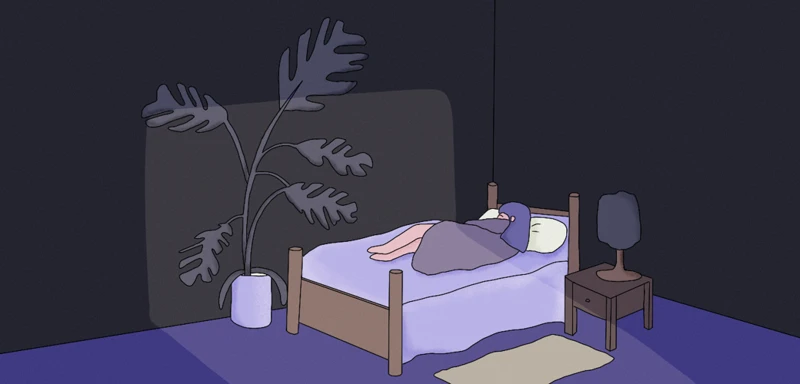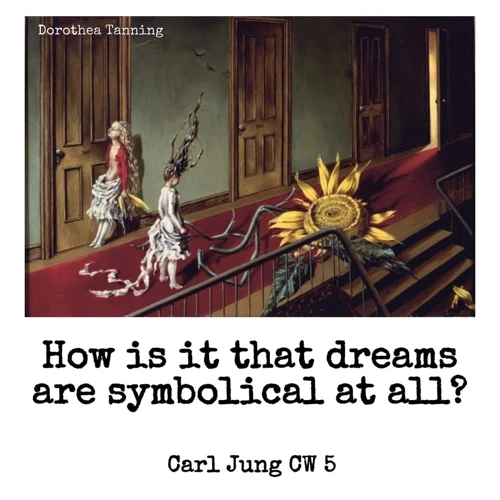Have you ever woken up from a dream, your heart pounding as if you were being chased? Dreams have long fascinated us, with their mysterious symbols and the emotions they evoke. But what do these nightly visions really mean? In this article, we dive into the science of dreams, analyzing the purpose behind these vivid experiences. We’ll take a closer look at dreams of being hunted, understanding the symbolism behind them and the feelings of anxiety and fear they may represent. We’ll explore common interpretations and delve into the psychological analysis of these dreams, uncovering what they may reveal about our subconscious thoughts and emotions. Additionally, we’ll provide tips for coping with dreams of being hunted, helping you navigate through the often perplexing world of dreams. So, buckle up and get ready to unravel the secrets behind your nightly visions.
The Science of Dreams

Dreams have long been the subject of fascination and speculation. The study of dreams, known as Oneirology, is a branch of psychology that seeks to unravel the mysteries behind these nightly visions. Scientists have discovered that dreams occur during the rapid eye movement (REM) stage of sleep, and they serve multiple functions, including memory consolidation and emotional processing. Dream analysis has been used to gain insight into the subconscious mind and can provide valuable information about a person’s thoughts, emotions, and experiences. Understanding the science of dreams can help us make sense of the symbols and emotions that arise during our sleep, shedding light on the intricate workings of our minds. So, let’s delve deeper into the fascinating realm of dreams and explore their significance.
1. The Purpose of Dreams
The purpose of dreams has fascinated researchers and psychologists for centuries. While the exact function of dreams is still not fully understood, several theories have emerged. Some believe that dreams serve as a way for the brain to process and consolidate memories, helping us organize and retain information. Others suggest that dreams are a form of problem-solving, allowing the mind to work through complex issues and emotions in a safe environment. Additionally, dreams may provide a platform for wish fulfillment or serve as a way to fulfill unmet psychological needs. The interpretation of dreams varies from person to person, and their meaning can be highly subjective. In order to unlock the hidden messages within our dreams, it is important to pay attention to the unique symbols and emotions that arise during sleep. By understanding the purpose of dreams, we can gain a deeper insight into our subconscious mind and harness the power of our nighttime visions.
Understanding Dreams of Being Hunted

Dreams of being hunted can be particularly intense and evoke strong emotions. These types of dreams are often rich in symbolism, reflecting our deepest fears and anxieties. Understanding dreams of being hunted requires delving into the symbolic meaning behind the elements present in the dream. The sensation of being pursued can represent a sense of vulnerability or powerlessness in waking life. It may also indicate feelings of anxiety, fear, or a need to escape from a certain situation. Additionally, dreams of being hunted can reflect power dynamics and the struggle for control. The dreamer may feel threatened by someone or something in their life, whether it be a person, a situation, or even their own internal conflicts. By exploring the symbolism and emotions associated with dreams of being hunted, we can gain valuable insights into our subconscious thoughts and fears.
1. Symbolism in Dreams
Symbolism plays a significant role in dreams, as they often communicate our subconscious thoughts and emotions through intricate symbols and imagery. These symbols can be highly personal and may vary from person to person based on their experiences and cultural backgrounds. For example, dreaming about being chased can symbolize a variety of things such as feeling threatened, pursued, or avoiding a certain situation. A dream of being hunted could represent the presence of hidden fears or unresolved conflicts. It’s important to consider the context and personal associations we have with these symbols when interpreting dreams. Symbols in dreams can serve as gateways to understanding our deeper desires, fears, and motivations, offering valuable insights into our subconscious minds. To fully comprehend the symbolism in your dreams, keeping a dream journal can be immensely helpful in identifying recurring patterns and themes.
2. Anxiety and Fear
Anxiety and fear are common emotions experienced during dreams of being hunted. These dreams often reflect the individual’s underlying anxieties and concerns in their waking life. The feeling of being chased can represent a sense of vulnerability and the fear of being pursued or attacked. It may stem from unresolved conflicts, past traumas, or the fear of failure. Anchored in these dreams are powerful emotions that can leave a lasting impact even after awakening. Understanding the connection between dreams and emotions can provide valuable insights into our subconscious minds and help us address and cope with our fears in a healthier way. So, let’s dive deeper into the realm of dreams and uncover the layers of symbolism and psychology behind these feelings of anxiety and fear.
3. The Role of Power Dynamics
When analyzing dreams of being hunted, it is important to consider the role of power dynamics. These dreams often involve a sense of vulnerability and a struggle for control. The hunter represents a figure of authority or dominance, while the dreamer may feel powerless and trapped. Power dynamics in dreams can reflect real-life situations where the dreamer may feel overwhelmed or oppressed. It could be a manifestation of a power struggle at work, in relationships, or even within oneself. Exploring these power dynamics can provide valuable insights into the dreamer’s personal and social experiences. By examining the relationships and interactions portrayed in the dream, we can gain a deeper understanding of the underlying emotions and conflicts that may be influencing the dreamer’s waking life.
Common Interpretations

Dreams of being hunted can have various interpretations, shedding light on our subconscious thoughts and emotions. Here are some common interpretations:
1. Feeling Helpless or Trapped: Dreams of being hunted often symbolize a sense of helplessness or feeling trapped in a particular situation in waking life. It may indicate a lack of control or the presence of overwhelming challenges.
2. Fear of Betrayal: These dreams can also reflect a deep fear of betrayal or being deceived by someone close to you. It may signify a lack of trust or unresolved issues within relationships.
3. Emotional Conflict or Suppressed Emotions: Dreams of being hunted could be a manifestation of emotional conflict or the suppression of certain emotions. It may be a sign that there are unresolved feelings or buried emotions that need to be addressed.
4. Self-Destructive Tendencies: In some cases, dreams of being hunted can point to self-destructive tendencies or a subconscious desire to sabotage oneself. It may be an indication of internal conflicts and the need for self-reflection.
Understanding these common interpretations can provide valuable insights into the underlying themes and emotions within dreams of being hunted. By analyzing these dreams, we can gain a deeper understanding of ourselves and our subconscious mind.
1. Feeling Helpless or Trapped
Feeling helpless or trapped is a common theme in dreams of being hunted. These dreams often symbolize a sense of powerlessness or being overwhelmed in waking life. They may arise from situations where you feel stuck or unable to escape from a challenging circumstance. It could reflect underlying fears or anxieties about your ability to overcome obstacles or make important decisions. When analyzing dreams of feeling helpless or trapped, it’s important to consider the specific details and emotions experienced in the dream. Are there any real-life situations that resonate with this feeling of being trapped? Exploring these connections can provide valuable insights into your subconscious mind and help you navigate towards a sense of liberation and empowerment. For more information on interpreting dreams about feeling trapped, you can visit the link here.
2. Fear of Betrayal
In dreams of being hunted, one common interpretation is the fear of betrayal. These dreams often reflect underlying anxieties about trust and loyalty. They may stem from past experiences of being let down or betrayed by someone close. The feeling of being pursued in a dream can symbolize a fear of being deceived or abandoned. It can also indicate unresolved emotional conflicts or a lack of trust in relationships. These dreams serve as a reminder to examine our own feelings of trust and treachery, and to address any issues related to vulnerability and honesty. Exploring the root causes of these dreams and seeking resolution can help alleviate the fears associated with feelings of betrayal. For further insights into dreams involving betrayal, you can read more about dreams about a hurricane and their symbolism.
3. Emotional Conflict or Suppressed Emotions
Emotional conflict or suppressed emotions can play a significant role in dreams of being hunted. These dreams may indicate unresolved feelings or internal struggles that need attention. When we suppress our emotions or fail to address conflicts in our waking life, they often find expression in our dreams. The intense fear and anxiety experienced in dreams of being hunted can be a manifestation of these suppressed emotions. It is important to explore the underlying emotions and conflicts that may be surfacing through these dreams. Keeping a dream journal can help identify patterns and provide insight into the specific emotions being suppressed. By addressing and resolving emotional conflicts in our waking life, we can alleviate the intensity of these dreams and achieve a sense of emotional well-being. So, take the time to reflect on any emotional conflicts or suppressed emotions that may be surfacing in your dreams, and consider seeking guidance if needed.
4. Self-Destructive Tendencies
Dreams of being hunted can sometimes reflect our self-destructive tendencies. These dreams may suggest that deep down, we harbor negative beliefs about ourselves or engage in behaviors that are detrimental to our well-being. The act of being pursued in a dream can symbolize the inner turmoil we experience when we engage in negative habits or self-sabotaging behaviors. It is essential to pay attention to these dreams and reflect on whether there are any areas of our lives where we may be undermining our own progress or happiness. Understanding the connection between our dreams and self-destructive tendencies can serve as a wake-up call to make positive changes and seek personal growth. If you want to know more about dreams involving harm to loved ones, you can check our article on “What Does It Mean When You Dream About Your Son Getting Shot?“.
Psychological Analysis

Psychological analysis of dreams provides valuable insights into our subconscious thoughts and emotions. Dreams are believed to be a window into the inner workings of our minds, revealing hidden fears, desires, and conflicts. One aspect of psychological analysis is the exploration of the subconscious. Dreams often incorporate symbols and metaphors that represent deeper meanings. For example, dreams of being hunted may symbolize feeling pursued or threatened in waking life. Additionally, dreams can serve as a manifestation of anxiety disorders. Those who suffer from conditions like generalized anxiety disorder or post-traumatic stress disorder may experience frequent dreams of being hunted as a reflection of their underlying fears and anxieties. By analyzing our dreams through a psychological lens, we can gain a better understanding of ourselves and potentially uncover unresolved emotional issues that require attention.
1. Exploration of the Subconscious
Exploring the subconscious is a key aspect of analyzing dreams. When we dream, our unconscious mind takes center stage, revealing hidden desires, fears, and unresolved conflicts. Dreams provide a unique window into our subconscious, allowing us to access thoughts and emotions that may be inaccessible during our waking hours. By interpreting the symbols and events in our dreams, we can gain valuable insights into our deepest selves. Symbols in dreams often have personal meanings, specific to the dreamer. For example, dreaming of water might represent emotional turbulence for one person, while for another, it might symbolize a need for renewal or change. Therefore, exploring the subconscious through dream analysis can unlock a deeper understanding of ourselves and help us navigate our waking lives with greater clarity.
2. Manifestation of Anxiety Disorders
Dreams can sometimes be a window into our deepest anxieties and fears. When it comes to dreams of being hunted, they can often be a manifestation of underlying anxiety disorders. These dreams may reflect feelings of vulnerability, a sense of being chased or pursued by an unknown threat, and a general state of unease. The intense emotions experienced during these dreams, such as fear and panic, are indicative of the heightened levels of anxiety that may exist in waking life. People with anxiety disorders, such as generalized anxiety disorder or post-traumatic stress disorder (PTSD), may be more prone to having dreams of being hunted due to the constant presence of fear and hyper-vigilance in their daily lives. These dreams serve as a subconscious manifestation of the individual’s fears and anxieties, allowing them to process and confront their emotions in a symbolic and metaphorical way. It is important to recognize that dreams of being hunted do not necessarily mean that a person has an anxiety disorder, but rather they may serve as a potential indicator of underlying anxiety issues that should be addressed and managed.
Tips for Coping with Dreams of Being Hunted
When we experience dreams of being hunted, it can leave us feeling frightened and unsettled. However, there are strategies we can employ to cope with these intense dreams and reduce their impact on our well-being. Here are some tips for coping with dreams of being hunted:
1. Keep a Dream Journal: Writing down your dreams in a journal can help you gain a better understanding of their patterns and symbols. It allows you to reflect on the emotions and themes that arise in these dreams and can provide valuable insights into your subconscious thoughts and fears.
2. Practice Relaxation Techniques: When you wake up from a dream feeling anxious or scared, it’s important to engage in relaxation techniques to calm your mind and body. Deep breathing exercises, meditation, or progressive muscle relaxation can help you alleviate stress and promote a sense of peace and tranquility.
3. Seek Support: Talking about your dreams with a trusted friend, family member, or therapist can provide you with a space to express your emotions and gain a different perspective. Sometimes discussing your dreams with others can help you gain new insights and alleviate any lingering anxiety.
Remember, dreams are a normal part of the human experience, and by implementing these coping strategies, you can navigate through dreams of being hunted with greater ease and understanding.
1. Keep a Dream Journal
Keeping a dream journal can be a valuable tool for understanding and analyzing your dreams. By recording your dreams as soon as you wake up, you can capture the details and emotions that may fade away throughout the day. A dream journal allows you to track patterns and recurring themes in your dreams, providing insights into your subconscious mind. It also helps improve dream recall over time, as the act of writing can strengthen the neural pathways associated with dream memory. Additionally, having a dream journal can serve as a creative outlet, allowing you to explore and reflect upon the unique world of your dreams. So, grab a notebook or use a digital app to start documenting your dreams and unlock the hidden meanings within them.
2. Practice Relaxation Techniques
When dealing with dreams of being hunted, practicing relaxation techniques can be incredibly helpful in alleviating anxiety and stress. Here are some relaxation techniques to consider incorporating into your routine:
1. Deep Breathing: Take slow, deep breaths, filling your lungs with air and then exhaling slowly. Focus on your breath and let go of any tension or fear.
2. Progressive Muscle Relaxation: Start by tensing and then releasing each muscle group in your body, starting from your toes and working your way up to your head. This technique helps promote a state of relaxation throughout your entire body.
3. Meditation: Set aside some time each day to practice meditation. Focus on clearing your mind and finding inner calm. This can help reduce stress and anxiety, allowing for a more peaceful sleep.
4. Guided Imagery: Utilize guided imagery exercises by listening to recordings or visualizing calming and peaceful scenes. This can help redirect your mind away from fearful thoughts and into a more tranquil state.
Remember, finding the right relaxation techniques that work for you may take some time and experimentation. Incorporating these practices into your daily routine can promote a sense of relaxation, ultimately helping you cope with dreams of being hunted and promoting a more restful sleep.
Conclusion
In conclusion, dreams hold a significant place in the realm of psychology and offer a gateway to the subconscious. By analyzing dreams, we gain insights into our thoughts, emotions, and unresolved conflicts. Dreams of being hunted, with their symbolism and feelings of fear and anxiety, unveil hidden aspects of our psyche. Whether they reflect feelings of helplessness, fear of betrayal, or suppressed emotions, these dreams provide a wealth of information for self-reflection and personal growth. Additionally, dreams can serve as a manifestation of anxiety disorders or other psychological conditions, emphasizing the importance of exploring their meanings further. Coping with dreams of being hunted can be achieved through techniques such as maintaining a dream journal and practicing relaxation techniques. Embracing the science of dreams opens up a treasure trove of self-discovery, empowering us to navigate the intricate terrain of our subconsciousness. So, embrace the mystery of your dreams, and let them guide you on a journey of self-understanding and insight.
Frequently Asked Questions
1. What are lucid dreams and can anyone experience them?
Lucid dreams are dreams in which the dreamer is aware that they are dreaming and can actively participate in and control the dream content. While not everyone experiences lucid dreams naturally, there are techniques and practices that can be learned to increase the likelihood of having lucid dreams.
2. Can dreams predict the future?
While there are anecdotal accounts of dreams seemingly predicting future events, the scientific evidence for precognitive dreams is limited. Dreams are more commonly seen as reflections of our thoughts, emotions, and experiences rather than prophetic glimpses into the future.
3. Why do some dreams feel so real?
During dreaming, the brain experiences activity similar to when we are awake. This heightened brain activity can make the dream feel extraordinarily real, engaging our senses, emotions, and even physical sensations. It is this vividness that can sometimes make dreams indistinguishable from reality.
4. Can dreams be influenced by external factors?
Yes, external factors such as our daily experiences, emotions, and even the environment we sleep in can influence the content of our dreams. For example, watching a scary movie before bed may lead to a dream filled with fear or suspense.
5. Why do dreams often seem bizarre or nonsensical?
Dreams are often characterized by fragmented, illogical, and bizarre elements because they are influenced by the creative and imaginative aspects of our minds. Without the restrictions of waking logic, dreams can take us on wild and unpredictable journeys.
6. Are recurring dreams significant?
Recurring dreams can hold significance as they may indicate unresolved issues or emotional patterns in our lives. Paying attention to the themes and emotions present in recurring dreams can provide valuable insights into areas that may need attention or healing.
7. Can nightmares be beneficial?
While nightmares can be distressing, they can also serve a purpose. Nightmares often reflect our anxieties and fears, allowing us to confront and process them in the safety of our dreams. They can also serve as warning signs for potential real-life dangers.
8. Can dream interpretation be subjective?
Yes, dream interpretation is highly subjective, as the meaning of symbols and experiences in dreams can vary greatly from person to person. It is important to consider personal associations, emotions, and cultural background when interpreting dreams.
9. Why do some people have trouble remembering their dreams?
Difficulty in remembering dreams can be attributed to several factors, including not waking up during the REM sleep stage, lack of dream recall practice, or certain medications. Keeping a dream journal and establishing a consistent sleep routine may help improve dream recall.
10. Can dream analysis be used for therapy?
Yes, dream analysis can be a valuable tool in therapy. By exploring the symbols, emotions, and narratives within dreams, therapists can gain insights into a person’s unconscious thoughts, conflicts, and potential areas for personal growth and healing.






